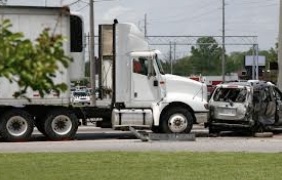Each year, thousands of people are injured or killed in truck accidents on US roads. These incidents can result in devastating physical and financial consequences for everyone involved. While the causes of these accidents can vary widely, one critical factor that must be considered is liability.
Truck accident liability refers to the legal responsibility that a party may hold for causing or contributing to a collision involving a commercial vehicle. Understanding liability is essential for all parties involved in an accident—victims, drivers, trucking companies, and insurers—to ensure that they can protect their rights and receive fair compensation for any damages incurred. This article explores the importance of understanding truck accident liability and some key factors to consider when determining who is at fault after an incident takes place.
Driver Liability: Understanding the Role of the Driver
Regarding truck accidents, driver liability is one of the most crucial factors. Truck drivers are responsible for operating large vehicles that can weigh over 80,000 pounds and cause significant damage in the event of a collision. Therefore, understanding the driver’s role in these accidents is essential for determining liability.
The primary responsibility of truck drivers is to operate their vehicles safely and responsibly. It includes obeying traffic laws, following company policies and procedures, properly maintaining their vehicle, and avoiding distractions. Failure to fulfill these duties can result in severe consequences, including injuries or fatalities for other motorists on the road.
Company Liability: Holding Trucking Companies Responsible
Trucking companies have a legal and ethical responsibility to ensure the safety of their drivers, other road motorists, and cargo. Unfortunately, accidents still occur for various reasons, such as driver fatigue, poor vehicle maintenance, or reckless driving. When a truck accident does happen, it is essential to determine who is liable for damages.
There are specific established regulations that trucking companies must follow regarding driver qualifications, hours of service limitations, vehicle maintenance standards, and more. Non-compliance with these regulations can result in fines and penalties for the company. Moreover, if an accident occurs due to non-compliance with these rules or negligence by the company or its employees (such as failing to secure cargo properly), they may be held liable for any resulting injuries or property damage.
Maintenance Liability: Ensuring Proper Vehicle Maintenance
Vehicle maintenance is an essential aspect of ensuring road safety. Poorly maintained vehicles can cause truck accidents, resulting in severe injuries, property damage, and even fatalities. Maintaining a fleet of commercial trucks requires regular inspections, repairs, and replacements to keep them in optimal working condition.
Truck accident liability would fall on the vehicle owner or operator if failure to maintain the vehicle contributed to the accident. Accidents often occur due to faulty brakes, worn-out tires, or other mechanical issues that proper maintenance could have prevented. Trucking companies must establish regular maintenance schedules and ensure drivers follow them to avoid costly litigation and protect public safety.
Legal Action: Steps to Take in Pursuing Compensation
Knowing that you have legal options to pursue compensation for your injuries and damages after getting into an accident is essential. The first step in pursuing legal action is determining who is liable for the accident.The first step for you to begin pursuing legal action to find who is at fault is to contact an expert in your state such as Rhodes Legal, a Delaware truck accident lawyer.
Truck accident liability can fall on multiple parties, including the driver, the trucking company, or even the truck manufacturer and its parts. In a few cases, more than one party may share liability for the accident. An investigation into the reason for the accident will help determine who should be held accountable.
Once liability has been determined, seeking medical attention for injuries sustained during the accident should be a top priority. It ensures proper treatment and recovery from injuries and provides documented evidence of injuries sustained due to the accident.




